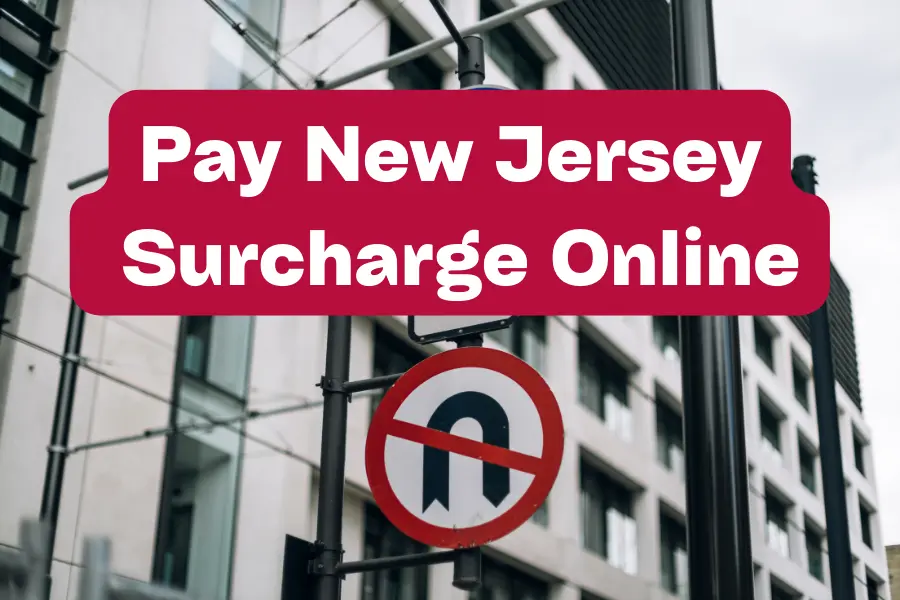Violating any traffic law within New Jersey (any other state) can result in hefty penalties and jail terms. It may not be as harsh as many other states, but the repercussions can be costly to your finances and freedom.
Once the court judges that you need to pay a surcharge, you must do so in time. And one way you can do that is via the online platform, www.njsurcharge.com.
Here is everything you need to know about making surcharge payments in NJ.
What is a surcharge?
Primarily, there are several traffic violations in NJ. The most common include DWI (Driving while intoxicated) or DUI (Driving under Indulgence), driving while suspended, and speeding tickets.
All of these offenses attract a different fine. However, you receive a point on your license for each violation you commit. Once they reach six points within three years, the court will demand that you pay a surcharge. You’ll also have to pay the amount yearly if your yearly points are six or more.

NJ Surcharge
Once the New Jersey Surcharge Violation System assesses your account and finds out that you have six points and beyond, they’ll send you a billing notice with a payment envelope.
The billing notice contains information on:
- The summary of your surcharges
- The total amount that is due
- The possible payment amount in installments
- Violation events
- Warnings of driving privileges you may lose in case you fail to pay
- Restoration amount if you have a suspended license
- Payment options
You can pay the NJ Surcharge via the online portal, pay by phone, western union, or mail.
All three options are efficient, but the online option stands out as the website is easy to use, convenient, and quick, and you can do it using your mobile phone or laptop.
How to Pay a Surcharge Online?
There’s nothing complicated about paying the New Jersey Surcharges online. The website is user-friendly, even if you could be the least tech-savvy person in the state. Here’s how you do it.
Step 1:
Log in to the New Jersey Surcharge Violation System website via this link: www.njsurcharge.com.
Step 2:
You’ll need your driver’s license number, Surcharge Number, Judgment Number, installation payment plan number, or Notice Number to log in. Keying any of this on the first field is okay. You must also type in your Date of Birth and click “submit.”
Step 3:
Once you log in, you’ll be able to see your surcharge record and the payment method. Note that for you to process the payment, you’ll need a debit or credit card. The two cards should have sufficient funds; otherwise, you might incur extra fees. Also, ensure that you have all the details when making the payments.
How to calculate the surcharge in New Jersey?
Most people get confused when it comes to this. They may feel the system overcharges them, but that’s not the case most of the time.
How do they make the calculations, then?
The best way to explain this is by giving an example. Each offense will cost you a point, which lasts three days. And for each of them, the charge is $25. If you get four points in the first and second years, you get two; your total surcharge amount will be $150 in the second year. And in the third year, it will still be $150 plus any other points you may have.
In the fourth year, the system will not assess the four points you got in the first year since they are more than three years old. However, the points you got in the second year onwards will count.
If you can’t make the full payment at once
Some fines can be expensive. You can pay in installments if you can’t afford to pay the surcharge in full. The installment payment plan, which you have to enroll in, allows you to do that. However, the billing notice comes with an installment amount, which you have to pay first by the due date. You can then pay the remaining amount every month in installments.
What if you can’t afford NJ Surcharge payments?
Every surcharge comes with a due date. If you fail to pay by the due date, the New Jersey Motor Vehicle Commission (NJ MVC) might have to suspend your driving license indefinitely. And for you to activate your license, you may need to pay a $100 restoration fee.
Failure to pay also means that this may result in:
- Reduced tax refunds
- May prevent you from making a personal property sale
- Wage garnishment: Your employer might have to send a part of your monthly salary directly to your surcharge account
- Certificate of debt
- Increased insurance bill
You can escape the surcharge if you file for bankruptcy. Once the MVC assesses your petition, they may choose to write off the entire balance and any other pre-petition violations. On the other hand, you may need to pay for any offense that you commit after this.
Note that you can’t escape a surcharge if you move into another state while having a balance. The new state may fail to offer you a new driving license until you pay the total surcharge. If you commit a traffic offense while driving in another state, it may affect your driving record.
Summary
If you have a surcharge balance, it’s good to pay it as soon as possible. Otherwise, it should affect your driving record and increase the fees charged due to late payment. In the case of any issues or clarification, you can always consult the operators who will offer help at any time of the week from 9.30 am to 5.00 pm.